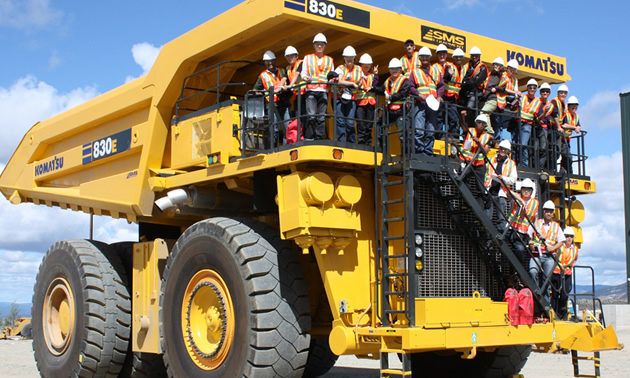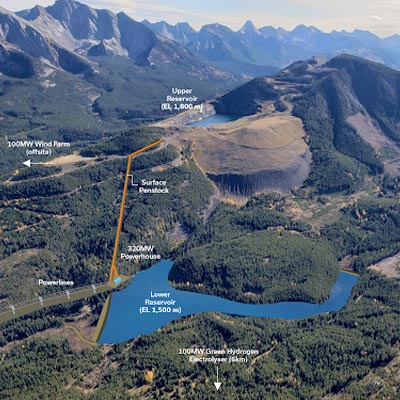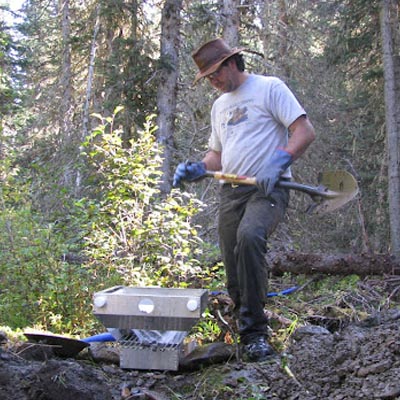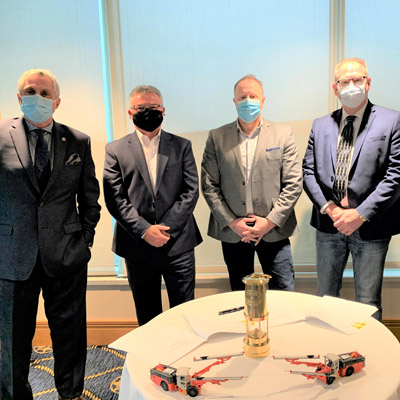Targeted training for the mining industry
UBC offers certificate of mining studies

Students in the Master of Engineering program 2009 at Copper Mountain. — Photo by AJ Gunson
With the mining industry in BC running at nearly full speed, the shortage of trained employees has become a concern. According to a report released by PricewaterhouseCoopers in October 2011, the mining industry was responsible for generating 45,703 jobs in 2010— 21,112 direct jobs and 24,591 spinoff jobs. Stating that the province of B.C. has two new major metal mines under construction and 30 projects in different stages of development, the report described BC as “geologically wealthy.”
Economically speaking, it’s an exciting time for the mining industry. But in any industry, when things take off there’s often a struggle to keep up with employee demand.
“There is a huge HR shortfall in the mining industry,” said Malcolm MacLachlan, administrator of the Norman B. Keevil Institute of Mining Engineering at the University of British Columbia. “In the next decade approximately 80,000 jobs will be available.”
The Norman B. Keevil Institute of Mining Engineering is the largest mining school in North America. And while the number of students continues to grow, so does the need for employees.
“What has interested students is the high pay and guaranteed jobs—100 percent of graduates are employed,” said MacLachlan. “Many of them are earning six figures when they join the work force.”
Combine that with the variety of opportunities both in Canada and abroad and a career in the mining industry just makes sense.
MacLachlan explains that there is a “generational gap” when it comes to the lack of employees. “Several people in the industry are at retirement age followed by a group in their thirties,” said MacLachlan. “The industry needs to get this group up to speed quickly to get people into management roles.”
One of the challenges, of course, is helping people get the professional development they need to step up into these roles. Time and location are big factors, plus there are many professionals with the necessary credentials but without the necessary mining experience.
This is where the Certificate of Mining Studies, offered through UBC’s Faculty of Continuing Education, comes in. The certificate program is a collaboration between UBC, the Canadian Institute of Mining, Metallurgy and Petroleum and Edumine, the professional development division of InfoMine Inc. It provides an opportunity for people in the industry, regardless of their position, to access courses for professional development and career advancement as well as to cross-train in different disciplines. For some it even provides an introduction to the mining industry. Although students do need some relevant qualifications, the intent is to provide accessible training, a key factor in an industry that’s moving full steam ahead.
“We recognize that people are busy, so we stress flexibility in this program. It’s been designed to accommodate [people’s] particular needs,” said MacLachlan.
He explained that most of the program’s students are already in the industry, but that there are subgroups of students with designations who need more training in mining-specific information. This includes a variety of professionals, from geologists and engineers to CFOs and accountants.
“The larger core, however, is made up of people who are working in the mines or in plants and want to keep up their education,” said MacLachlan.
The mining studies certificate program offers six streams of study: exploration; geology and reserves; geotechnics, rock mechanics and hydrology; environment, social Issues, health and safety; mining methods and mine planning; management, risk and financial and mineralogy and mineral processing. Students can choose courses from any of the streams to best fit their professional needs.
Students participate in three learning modules, which include lecture time in the form of short courses, individual projects and online learning. Almost all work is completed remotely except for the lectures, which are usually completed in Vancouver. In general, the certificate program can take anywhere from six months to three years to complete; all courses are delivered by industry specialists.
“People like the program because it’s flexible and they can create their own program by choosing courses within the different streams,” said Simon Houlding, vice president of professional development with InfoMine Inc. “One of our objectives was to reduce the time spent away from the job.”
The online courses and webcasts are the perfect tool to do this, providing interactive learning sessions while giving students an opportunity to enroll in unique and specialized courses.
“It’s a great way to disseminate information,” said Houlding, adding that 140 students from around the world are currently accessing the program. “There’s a tremendous shortage of trained professionals and that applies around the world.”
The Certificate of Mining Studies is one way to help alleviate the HR crunch, while encouraging people within the industry to look to the future and move ahead.
Some interesting facts about BC’s mining industry
- BC has seven metal mines, nine coal mines and approximately 27 industrial minerals quarries and mines, numerous placer mines and more than 1,100 aggregate pits in operation, according to UBC’s Norman B. Keevil Institute of Mining Engineering.
- BC is the largest coal-exporting province in Canada.
- In October 2011, a report released by PricewaterhouseCoopers LLP stated the mining industry generated $8.9 billion in economic activity across B.C.
For more information on the mining industry in B.C., please visit the Mining Association of BC at mining.bc.ca. For more information on the Mining Studies Certificate program offered by UBC, please visit mining.ubc.ca/CMSCourses.html or cms.EduMine.com.




